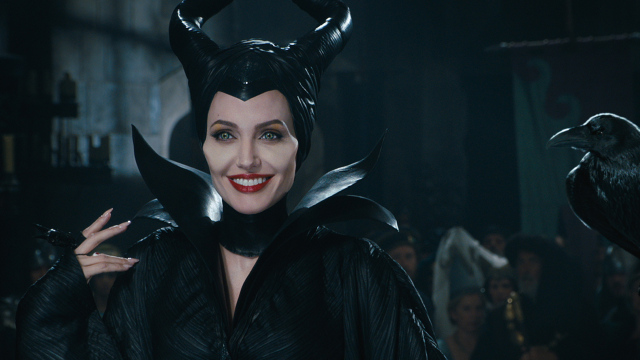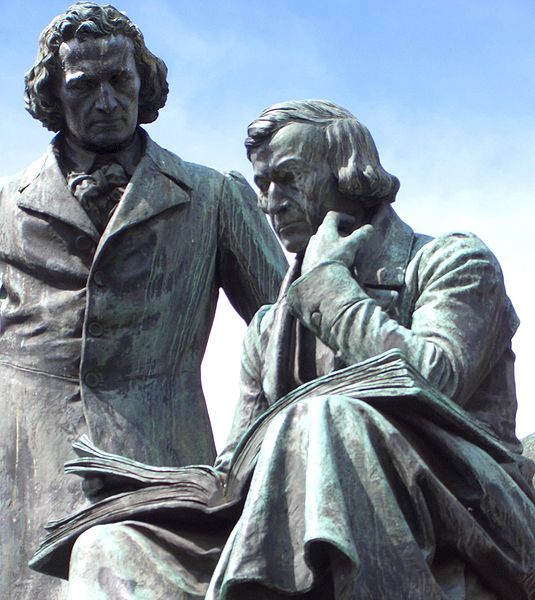-The Witch Must Die: How Fairy Tales Shape Our Lives by Sheldon Cashdan
Charles Folkard
I don't believe I had heard this before, I always assumed the name "Rumpelstiltskin" was a nonsense word, like his British counterpart Tom Tit Tot and the Scottish Whuppity Stoorie, etc. (He has also got by Trit-a-Trot, Terrytop, and more difficult names such as Holzruhrlein Bonnfurlein or Ferradiddledumday-see a list of related tales at Surlalune)
Adrienne Adams
And although it can be confusing when talking about Snow White from "Snow White and Rose Red" verses the more famous Snow White of the Seven Dwarves variety, in German their names are not actually exactly the same. The Snow White who ends up in a glass coffin is actually "Little Snow White" from the German Schneewittchen. The one with sisterly affection has a slightly different meaning, "White as Snow." (Found in Fairy Tale Rituals by Kenny Klein)
EDIT: Apparently my sources may not have been exactly correct in these above factoids-see the comments for more
It may be gone by the time this is posted, but right after the release of Disney's "Maleficent", Dictionary.com opened up its main page with a featured link, "what does Maleficent mean?" The definition:
ma·lef·i·cent
[muh-lef-uh-suh
 nt] Show IPA
nt] Show IPA
adjective
doing evil or harm; harmfully malicious: maleficent destroyers of reputations.
I think I always thought it was a combination of "magnificent" with "malevolent."
Sculpture by Syrius Eberle; monument to the brothers Grimm in Hanau, Germany
And last but not least-Tony once asked me if our English word "grim" came from the brothers Grimm. I hadn't thought so but it wasn't out of the realm of possibility. However, again according to Dictionary.com, the origin is from old English, before 900. So the last name of the famous brothers was just a coincidence, but heaven knows there are plenty of puns to go around :)





I love these snippets you find. I had read the Rumpel/rumple name meanings before (which is probably why I still can't spell Rumpelstiltskin without thinking about it!) but hadn't really thought about Little Snow White being so distinctive from SW & RR. Wasn't there a book of specifically fairy tale names floating around back in the 80's? I can't remember and can't find mention of it. (Maybe I'm just confusing it with some annotations, who knows!)
ReplyDeleteThe bit about Rumpelstiltskin and "rumpled" and "stealing" isn't really right, or at least only partially true. You had it right the first time, it's a bit of a nonsense word, but with certain undertones, i.e. it brings up certain ideas. The German is Rumpelstilzchen. "Rumpeln" means "to rumble" (as in, the noise); a "Stil" is a "stem"; but "stilz" also reminds one of "Pilz", "mushroom"; "-chen" is, as they say correctly, the diminutive. So Rumpelstilzchen is Little Rumbling Stem - for me it always conjured up this ill-tempered (rumbly, grumpy) gnome hopping on one foot around his campfire.
ReplyDeleteAs for Schneeweisschen and Sneewittchen, it's really the same name (both mean Little Snow White, literally), but the one is High German and the other Low German. The Low German name stuck for the seven-dwarfs girl and the other one for the bear-prince one.
But yes, a lot of fairy tale names have meanings, or sort-of meanings - like Rumpelstiltskin, they sound like they *should* mean something. It's fun to dig that stuff up.
Thanks for chiming in! I've edited the post to point readers down here. I really don't know any German at all so your insight is helpful! It's disappointing but given those two authors I'm not *too* surprised they might be off, I detected some inaccuracies in their books and it just goes to show you you can't believe everything, not even published (is it just me or does the whole idea of "you can't trust something just because it's on the internet" tend to give you the impression that everything in books MUST be true?)
Delete